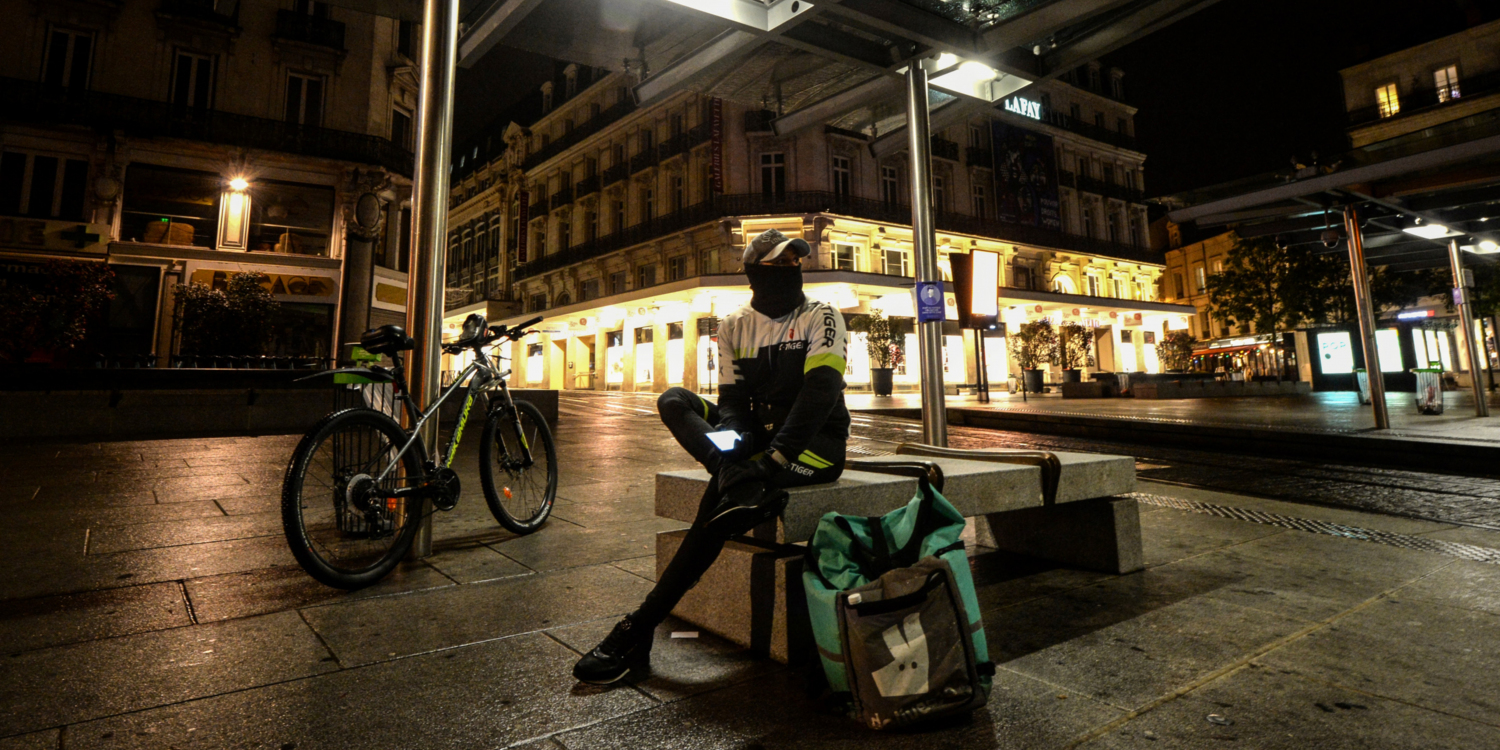Faced with the giants of home delivery and the precariousness of the delivery men they employ, new, more ethical platforms are emerging in France.
They apply more reasonable commissions to restaurateurs and employ salaried delivery men with rates established according to the kilometers traveled.
To survive despite the confinement, many restaurants are now relying on home delivery.
In the streets of the big cities, the delivery men are spinning at full speed by bicycle or scooter, their isothermal bags on their backs.
But this alternative, however practical it may be for customers, has its dark side.
"Seeing young people arriving at the Restos du cœur with their Uber Eats delivery outfits, it was a shame. They bring food, but have nothing to eat," said Patrice Blanc, president of the association this week .
The catering market is indeed dominated by giants with questionable methods to say the least.
These global, flourishing companies, which act as intermediaries between delivery people and restaurants, take very large commissions from restaurateurs (between 25 and 30% of the meal delivered), while relying on a fleet of precarious, poorly paid and almost without social security.
More ethical platforms
Faced with these practices, new platforms have emerged aiming to offer less precarious working conditions to delivery people and to take less from restaurateurs.
The
CoopCycle
federation
brings
together cooperatives of independent bicycle delivery people who wanted to free themselves from Uber Eats or Deliveroo, for example.
Among them, there is
Olvo
, in Paris, the
Courtiers Rennes
, the
Deliverers of Bordeaux
, the
Kouglof
, in Strasbourg or even
La Poit 'by bike
, in Poitiers.
Several chefs are sensitive to these initiatives, such as Antonin Bonnet and Jean-François Piège.
>> Find all of Laurent Mariotte's shows in podcast and replay here
Lower commissions and salaried deliverers
Other new platforms intended to be more ethical:
Tiptoque
and
Resto.Paris
, which both operate in the capital.
They charge reasonable commissions and employ salaried deliverers with rates established according to the mileage traveled.
However, it should be noted that these organizations cost more to restaurateurs.
Most chefs have therefore had no other choice since the start of containment than to call on the large platforms.
It also remains to convince more customers.
The new online platforms rely on a progressive awareness: since we have the possibility of it, why not pay a delivery at a price which guarantees a decent remuneration to all the people who make the restaurant live, from the producer to the delivery man through the chef?
So many professions that the crisis has severely weakened.

